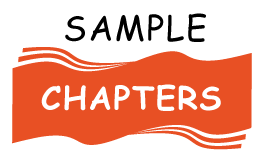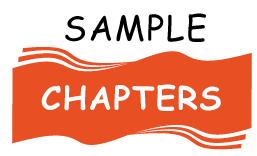The Future of Writing and Publishing: Blockchain Technology

The writing and publishing industry has always been at the forefront of technological advancements. From the printing press to the advent of e-books, each innovation has transformed the way content is created, distributed, and consumed. The latest frontier in this evolution is blockchain technology. Originally developed for secure and transparent financial transactions, blockchain is now poised to revolutionize writing and publishing by offering enhanced security, transparency, and efficiency. This article explores how blockchain technology is shaping the future of writing and publishing.
What is Blockchain Technology?
Blockchain is a decentralized digital ledger that records transactions across multiple computers in such a way that the registered transactions cannot be altered retroactively. This technology ensures that each transaction is transparent, secure, and tamper-proof, making it ideal for applications where trust and security are paramount.
Benefits of Blockchain in Writing and Publishing
1. Enhanced Security
Blockchain technology provides a secure platform for writers and publishers to protect their intellectual property. Each piece of content can be registered on the blockchain, creating a verifiable and immutable record of ownership. This prevents unauthorized copying, distribution, and modification of the content, ensuring that authors retain full control over their work.
2. Transparent and Fair Royalties
One of the significant challenges in the publishing industry is the opaque nature of royalty payments. Blockchain can offer a transparent system where all transactions are recorded and visible to all parties involved. Smart contracts—self-executing contracts with the terms of the agreement directly written into code—can automate royalty payments, ensuring that authors receive their fair share promptly and accurately.
3. Elimination of Intermediaries
Traditional publishing often involves multiple intermediaries, including agents, publishers, and distributors, each taking a cut of the profits. Blockchain technology can streamline this process by enabling direct transactions between authors and readers. This not only reduces costs but also ensures that authors retain a more significant portion of the revenue generated from their work.
4. Crowdfunding and Decentralized Publishing
Blockchain enables new models of publishing, such as decentralized publishing and crowdfunding. Authors can raise funds directly from readers and supporters by issuing tokens or cryptocurrencies. This democratizes the publishing process, allowing writers to bring their projects to life without relying on traditional publishing houses.
5. Immutable Records and Provenance
Blockchain provides an immutable record of all transactions and changes made to a document. This provenance is invaluable in establishing the authenticity and history of a piece of work. It can be particularly useful for rare manuscripts, historical documents, and first editions, ensuring their integrity and value over time.
Use Cases of Blockchain in Writing and Publishing
1. Content Protection and Rights Management
Platforms like Po.et and Authorship leverage blockchain to manage and protect intellectual property rights. These platforms allow authors to timestamp their work on the blockchain, creating a permanent record of ownership and ensuring that their content is protected from unauthorized use.
2. Transparent Royalty Distribution
Blockchain-based platforms like Publica and Ujo Music are experimenting with smart contracts to automate royalty payments. These platforms ensure that every time a piece of content is purchased or used, the author and other stakeholders automatically receive their fair share of the revenue.
3. Decentralized Publishing Platforms
Platforms like Steemit and Scribe offer decentralized publishing solutions where authors can publish their work directly to the blockchain. These platforms often reward authors with cryptocurrency tokens based on the popularity and engagement of their content, providing an alternative revenue stream.
4. Tokenization and Crowdfunding
Authors can tokenize their work by creating digital tokens that represent ownership or shares in their project. These tokens can be sold to raise funds for writing, editing, and publishing expenses. Platforms like Bookchain allow authors to issue tokens that can be traded on blockchain marketplaces, providing a new way to finance literary projects.
Future Trends and Challenges
1. Increased Adoption and Integration
As blockchain technology matures, we can expect to see increased adoption and integration within the writing and publishing industry. More platforms and tools will emerge, offering innovative solutions to longstanding challenges.
2. Regulatory and Legal Considerations
The implementation of blockchain technology in publishing will require navigating complex regulatory and legal landscapes. Issues such as copyright, intellectual property rights, and data privacy will need to be addressed to ensure compliance with existing laws.
3. Technological and Scalability Issues
Blockchain technology is still in its early stages, and there are challenges related to scalability, energy consumption, and transaction speed. These issues will need to be resolved to ensure that blockchain can handle the demands of the global publishing industry.
Conclusion
Blockchain technology holds immense potential to transform the writing and publishing industry by enhancing security, transparency, and efficiency. By leveraging blockchain, authors can protect their intellectual property, receive fair and transparent royalties, and engage directly with their audience. As the technology continues to evolve, it will pave the way for new models of publishing and content distribution, ensuring a more equitable and efficient ecosystem for writers and readers alike.
For more insights into the evolving landscape of digital publishing, explore our article on E-books and Digital Reading, Print-on-Demand (POD) Services: Revolutionizing the Publishing Industry. Additionally, if you're interested in self-publishing, don't miss our comprehensive guide: Navigating the World of Self-Publishing Platforms. To learn about the integration of multimedia in e-books, read our article on Integration of Multimedia in E-books: Enhancing the Reading Experience.



